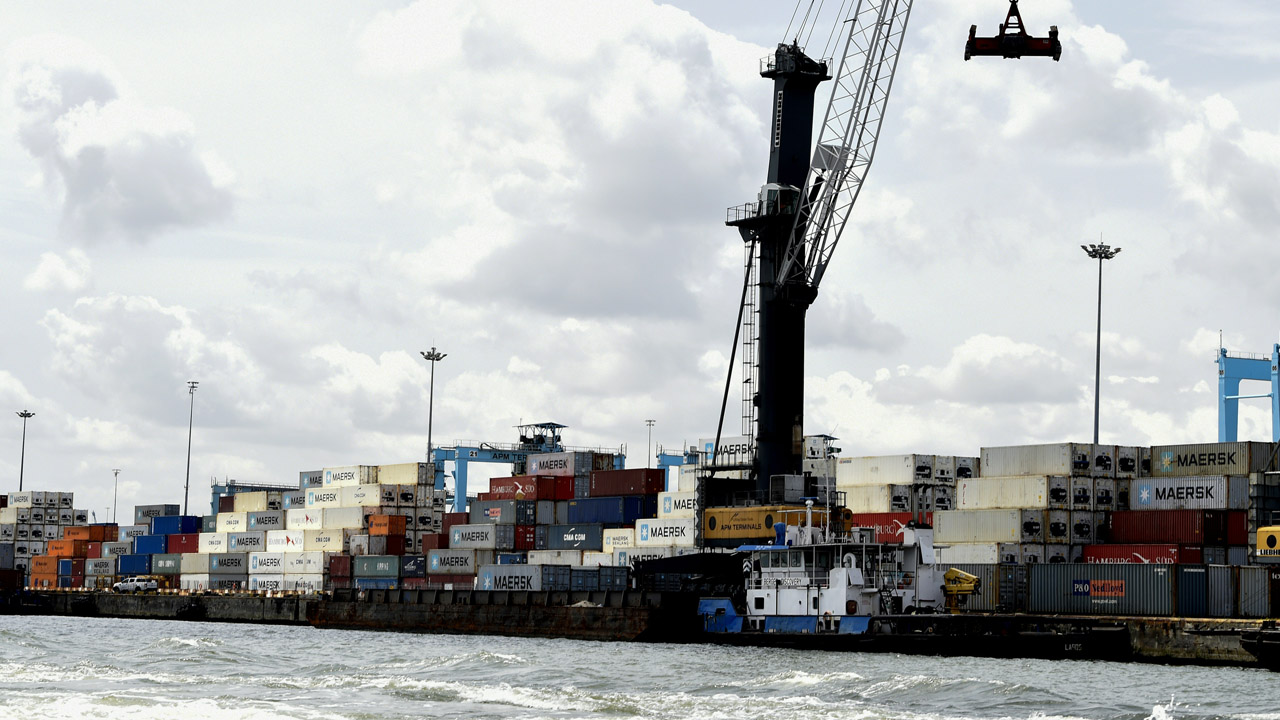
• Importers spend N1.7 billion yearly on container deposits
• Shippers’ Council moves to end unethical practices in ports
Nigeria consumers may need to prepare to bear the brunt of consistent arbitrary charges on imported goods, as the freight forwarders, importers and clearing agents bleed under an extorting regime by the foreign shipping lines and terminal operators.
The situation, according to stakeholders may worsen the rising inflation rate in the country, if urgent actions are not taken. The National Bureau of Statistics (NBS), had stated in its latest report that Nigeria’s inflation rate grew to 12.82 per cent (year-on-year) in July 2020, the highest in 27 months.
A Freight Forwarder, Jane Besnon told The Guardian that the Freight Forwarders are suffering from lots of lootings in the hands of the shipping lines and the terminal operators.
“This issue of arbitrary charges has been a serious challenge on our side. We have suffered a lot of humiliations from these people,” she said.
“For instance, before any shipment is being done, the freight charges ranges from about $4,000 to $5,000 to the shipping firms, but on getting to Nigerian ports, we also pay some charges before we can take delivery of the consignments.
“These foreign shipping lines are now turning Nigerian ports into storage facility, busy accruing demurrages on consignments and frustrating people.
“On the empty containers, after processing our documents with Customs and taken delivery of the consignments, returning the empty containers becomes a serious problem, and they capitalize on that to delay you new consignment asking for the empty containers without putting into considering the challenges we encounter such as the gridlock on the road due to poor access to the port.
“We all cannot pretend to be unaware of what happens on the ports access roads. The seaports are actually inaccessible due to gridlock from the ongoing construction, which has been on for years now,” she said.
Another clearing agent, who proffered anonymity said this situation has also led terminal operators to resort to using bonded terminals and extorting Nigerians, charging them for transfer charges on transferred that the owners did not know about.
“We have written to the shipping companies several times to provide holding bays where we can drop the empties, but all these appeals fell into deaf hears.
The source lamented that the empty containers are always laden on trucks for number of days on the port area waiting for return, noting that the truck are being hired for between N400,000 to N500,000 per day.
“We keep spending money running into millions of naira before we are able to drop empty container, due to lack of holding bays.
“Government should come to our rescue. This is only done in Nigeria. These arbitrary charges are not applicable in other neighbouring countries.
“Unfortunately, the consumers are the ones to bear the burden, because whatever the charges would be pushed to the consumer.
“How do we facilitate trade, when a product that ordinarily should have gotten to the market for N200 is getting the market for N400. This is disheartening and this is the height of frustration. Honestly we are actually bleeding,” the source stated.
However, importers are beginning to worry how to break even after calculating the losses on the shipping companies and terminal operators.
Chairman, Shippers Association of Lagos State (SALS), Jonathan Nicol said the arbitrary charges, including the Peak Season Surcharge (PSS) by foreign shipping companies are strangulating Nigerian shippers and importers.
He said: “The foreign shipping lines ought to be happy that they have cargoes to move because the freight charges should be enough for them. We are in a pandemic period; this is not the right time to introduce new and excessive charges. Everybody is giving concession that lures people to come and do business in this pandemic period, so why are the shipping lines trying to kill business at this time?
“We are not against the shipping lines because we are trade partners with them. However, with the PSS introduction, we feel they are strangulating us. Don’t forget the border closure is still there,” he said.
Executive Secretary, Nigerian Shippers’ Council, Hassan Bello bemoaned the rent seeking strategy, the container deposit charges and the PSS charges.
He said: “We are resolute and determined to eradicate unethical practices in the ports.
“The container deposit regime must be reformed. A lot of money is being paid on return of empty containers. The roads are bad and the shipping firms don’t have holding bays, so we are looking at another strategy, an indemnity regime,” he said.
Bello said about N1.7 billion is being collected for empty container deposit by shipping firms.
“There are no standard practices within the industry pertaining to the requirement of container deposit. In Apapa, the challenge of container return was the dilapidated roads. We have looked at how it is done in other clime and we are consulting widely,” he said.
Bello lamented that the shipping companies charge $100 as deposit for a 20 feet container within Lagos, and $200 outside Lagos, while $200 is charged on 40 feet container within Lagos and $400 outside Lagos.
He said such charges are not collected in Hong Kong, China, Sri Lanka, Mayanmer and Singapore.
He however urged the freight forwarders to handle the container with care.
General Manager, Tariff and Billings, Nigerian Ports Authority (NPA) Abubakar Garba Umar, said the empty containers loitering around is the fault of the shipping lines because they refused to set up an holding bay in Nigeria.
“The liners should also be encouraged to put facilities in place to enhance the planned electronic systems at the ports,” he said.



